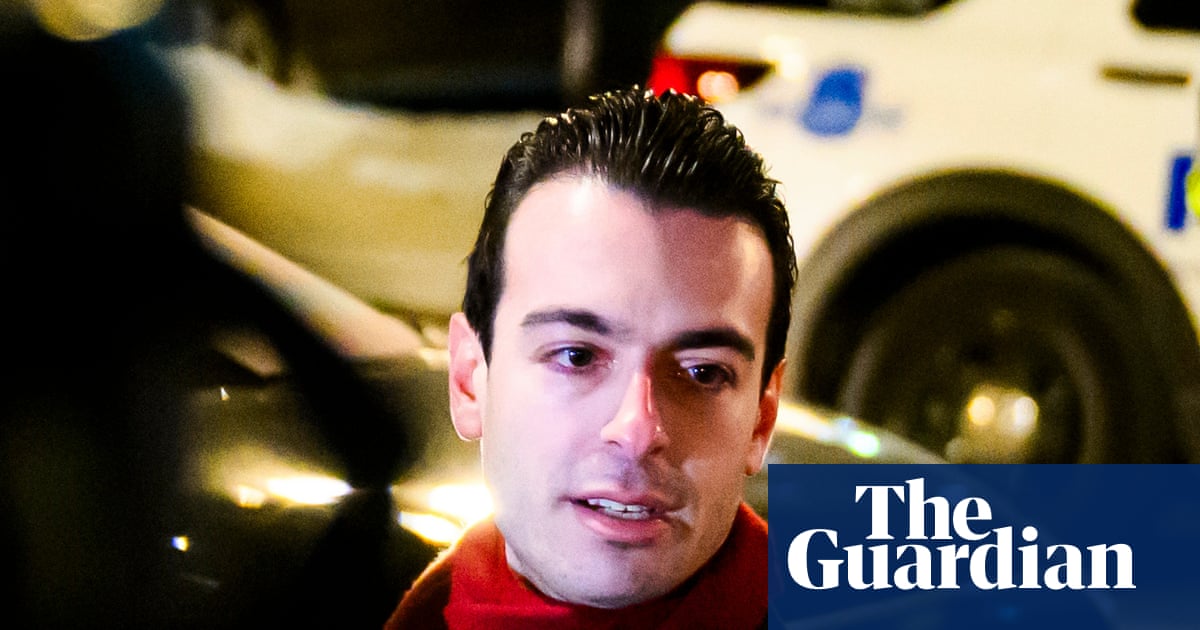The family courts will no longer work on the presumption that having contact with both parents is in the best interests of a child, in a landmark change that domestic abuse campaigners have said “will save so many children’s lives”.
The move has been heralded as “groundbreaking” by family lawyers and campaigners who have long argued that the “pro-contact culture” in the family courts places the rights of abusive fathers over the safety and wellbeing of children.
Currently, under the Children Act 1989, courts are guided to work on the principle that children should have contact with both parents unless there is evidence that a parent could put the child at risk of harm.
The government confirmed on Tuesday that it would repeal the presumption of parental involvement from the act “when parliamentary time allows”.
The decision to remove the presumption comes after the government’s own harm panel found that it was not fit for purpose, and in 2020 recommended that an “urgent” review be conducted to address the issue.
A report for the domestic abuse commissioner’s office, published earlier this month, found in many cases parental contact – including unsupervised overnight contact – had been allowed, even in cases where domestic abuse was present.
The announcement means family court judges will no longer have to work from a starting point that parental involvement is in the child’s best interest, and instead will be directed to consider the evidence and assess a child’s wellbeing on a case-by-case basis.
Dr Charlotte Proudman, a family law barrister, and co-director of Right to Equality, described the move as “a victory for children’s rights, for survivors and for justice” and “a vital step in dismantling the pro-contact culture that has dominated family courts for too long”.
“It sends a clear message: children’s welfare will always be the priority and parents who undermine their welfare cannot use the system to continue to perpetrate harm,” she said.
The change comes after decades of campaigning from the domestic abuse sector, with experts describing the issue of the family courts as the biggest area of concern for domestic abuse victims and survivors.
“It’s incredibly significant because it absolutely reorientates the way that these courts work,” Farah Nazeer, CEO of Women’s Aid, said.
Abusers have long used the family courts as a way of retaining control over their ex-partners, while women who raise domestic abuse in the courts have often been subject to counter allegations that they are attempting to “alienate” the child from the father.
“This is the policy area and area of concern that the vast majority of survivors and children want us to work on, because it’s the one that really touches the core of their safety,” Nazeer added.
“And this presumption of parental involvement has plagued survivors for decades, to a point where often women will choose not to leave a perpetrator because they know a court will be governed by this sort of legislation, convention or culture of the presumption of parental contact being a good thing, rather than actually centring the child’s safety and voice.”
One of the leading campaigners in the area, Claire Throssell, from Pennistone in South Yorkshire, has lobbied for more than a decade for reform of the family courts, after the deaths of her sons, who were killed by her partner, despite Throssell presenting evidence that he had previously threatened to kill them and himself.
In October 2014, Darren Sykes, who had been granted contact with his children for five hours a week, lured their sons, Jack, 12, and Paul, nine, into the attic with a new model train set, before he set fire to the house, also killing himself.
“It doesn’t feel like a victory or a win, but it does feel that there is a change coming in the country, and it will save so many children’s lives. I have to take comfort from that,” Throssell said.
Dame Nicole Jacobs, the domestic abuse commissioner, described the announcement as “a pivotal moment” that will “ensure children are properly heard, protected and supported”, and allow courts to “make safer decisions”.
“Every day I hear from survivors who have been failed by the family justice system – where many have been forced to watch as their children are silenced and decisions are taken that directly put them in harm’s way,” she said.
“This announcement – which stems from the tireless campaigning by Claire Throssell and the wider domestic abuse sector – will ensure that the courts place the safety and wellbeing of children above all else.”
Saskia Lightburn-Ritchie, chief executive of My CWA, said: “Many of us have been lobbying for this for years and years, the families that I work with are going to be thrilled.
“Absolutely it makes sense that all parents should have to prove that they’re good enough parents and safe enough parents to have contact with the children, and moving the presumption out of that formula is going to mean that that’s what we’re looking for.
“So, instead of only excluding absolutely the worst parents, we can be looking at what it means to be a good and a safe parent, and that’s going to make thousands of children safer. I’m thrilled to bits with it.”
Proudman said: “I’ve represented rape victims who have been forced by family courts to take their child to spend regular time with their rapist, and if they refuse, they are at risk of going to prison or their child being handed over to their rapist.
“This is abuse. I have been campaigning for more than five years for this groundbreaking legal change – no longer will abusive parents have an automatic presumption to see their child. This will keep children safe, and I honestly believe it will save lives.”
Professor Shazia Choudhry, from the University of Oxford, whose research has focused on the experiences of female survivors of domestic abuse of the family court system, described the change as “an unequivocally positive step”.
“A large body of research and survivor experience has demonstrated that this presumption has too often operated as a barrier for victims of domestic abuse, in proving that contact is not in the best interests of children who are themselves at risk,” she said.
“Removing it will put safety, welfare and the child’s voice back at the centre of decisions, so contact is earned by behaviour, not assumed by law.”
However, experts have cautioned that the change is not a panacea, and that it must be accompanied by proper training for judges in order to facilitate a cultural shift in the family courts.
“I think it is really, really important that judges have mandatory training, because if judges don’t have mandatory training, we know that they don’t recognise domestic abuse,” Nazeer said.
“Historically, the judiciary haven’t been open to being trained by specialist domestic abuse organisations. It’s not a transparent system, and it’s not particularly accountable, so I think there is a real need to ensure mandatory training happens.”
Olive Craig, a senior legal officer at Rights of Women, said: “We think it’s a really positive step towards a prioritisation of the protection of survivors and children’s voices in the court. It’s a really important and significant message about what its priorities should be.
She added: “While this is a really, really important step forward, it is just one step towards managing the very real problems of the cultural environment in the family justice system. And while we’re really pleased to see this really positive step, it is just that, it’s a step.
“It’s not going to solve everything, so it’s really important that the court takes note of the message that’s being sent.”

.png) 4 hours ago
4
4 hours ago
4

















































